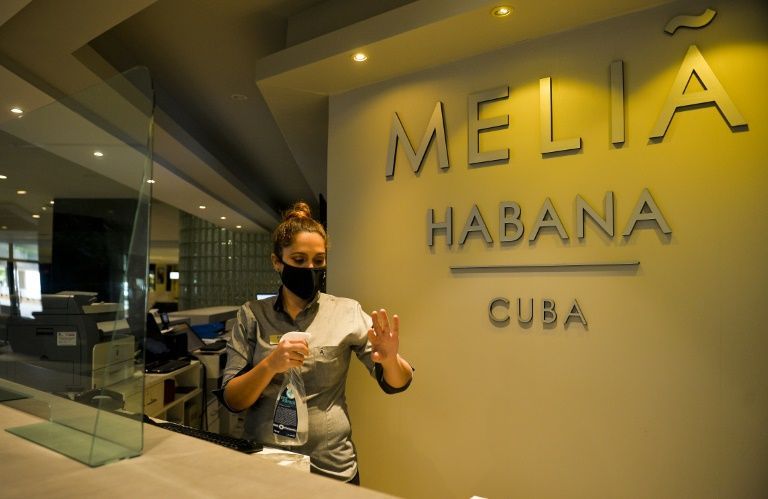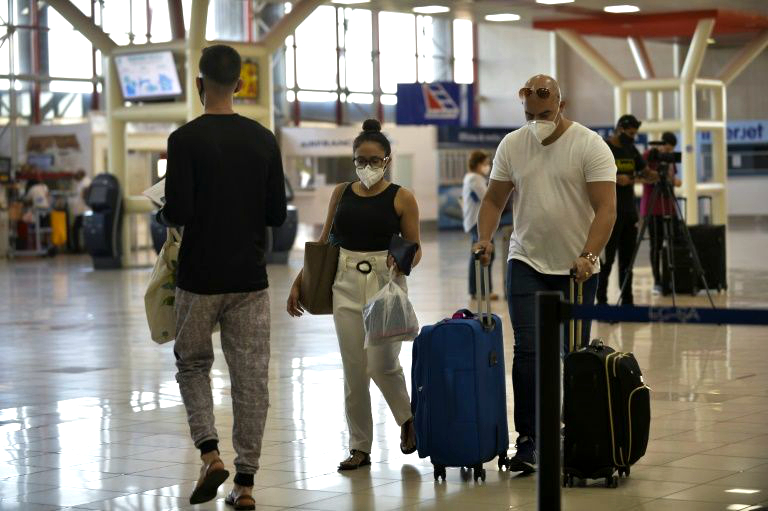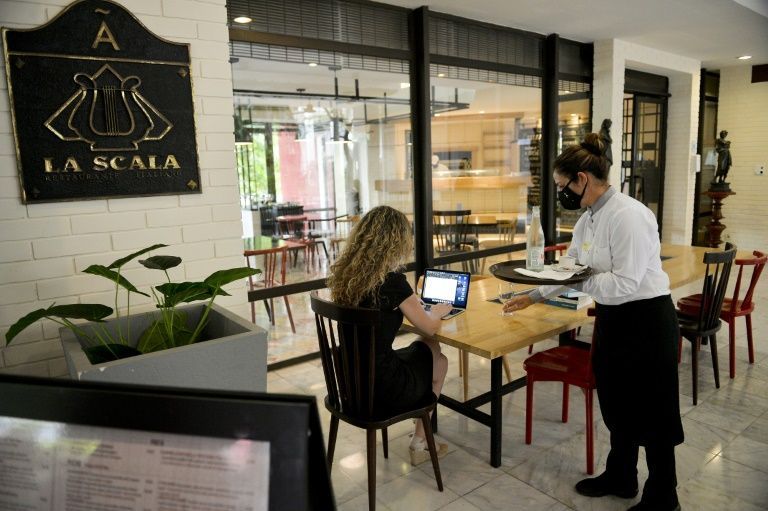Cuba is reopening its doors to foreign tourists after an eight-month shutdown due to the coronavirus pandemic, but the cash-strapped country faces an uphill struggle to woo back wary travelers.
Tourism chiefs are banking on the island's track record of keeping the virus in check to win back holidaymakers.
"This is a major challenge," said Francisco Camps, deputy general manager of Melia, a Spanish hotel chain that is currently operating only 10 of its 34 locations in Cuba.
The industry is pinning its hopes for the November-April high season on the capital Havana, the country's main tourist draw, which opened its international airport last weekend.
With its old-fashioned Caribbean charm, the UNESCO World Heritage city attracts hundreds of thousands of visitors every year.
"Havana is important because it has regular flights, which allows connections with Europe," says Camps.

A receptionist sanitizes her hands at the Melia Habana Hotel in Havana. /AFP
A receptionist sanitizes her hands at the Melia Habana Hotel in Havana. /AFP
"It also allows a flow of visitors who do not only come to see the city but also do tours" – bringing more tourist dollars than mere beachgoers.
The rest of the country's six international airports reopened last month to charter flights.
Tourism was worth $2.6 billion to Cuba in 2019. Deprived of that revenue this year, the island had to drastically reduce imports – the source of 80 percent of its food.
Across the country, lines outside supermarkets are getting longer, with shortages of basics like coffee, milk and even toilet paper increasingly common.
"The shortages we are experiencing are quite significant – I think it's the worst since the 1990s," said economist Ricardo Torres of the University of Havana.
That decade was dominated by a period of extreme austerity known as the Special Period, following the collapse of the Soviet Union.

Havana's international airport reopened in mid-November 2020. /AFP
Havana's international airport reopened in mid-November 2020. /AFP
Torres said tourism "is the sector that really managed to pull Cuba out of its worst economic crisis," after that period.
But these days, opening the country's doors to international visitors is not risk free.
Several cases of coronavirus have been detected on flights of British and Russian tourists who have recently come to visit the island's beaches, forcing dozens of travelers into isolation.
"This is undoubtedly a great risk," said Francisco Duran, chief epidemiologist at Cuba's health ministry.
"I think our population needs to be aware of this, so that they can protect themselves as well as the people who arrive."
Case numbers here are among the lowest in the Americas, with just over 7,700 infections in a population of 11.2 million.

Every hotel will have a permanent medical team in place. /AFP
Every hotel will have a permanent medical team in place. /AFP
"Cuba, a safe destination" has been adopted as a slogan designed to reassure travelers.
Cuba's protocols require new arrivals to take a PCR test costing $30 on arrival and limit their movements until results are made available 24 hours later.
Every hotel will have a permanent medical team in place, due to a national health network that boasts 82 doctors per 10,000 inhabitants – compared with 32 in France and 26 in the United States.
"Cuba's very successful strategy in controlling the epidemic is also an asset when it comes to opening up," said Torres, "because the tourists in the coming months will be looking for safe destinations from a health perspective."
"So, yes, we have to protect people's lives, but we also need to revive our economy, which is in a downward spiral," he said.
(With input from AFP; Cover: A passenger has his temperature checked at Havana's Jose Marti International Airport. /AFP)

